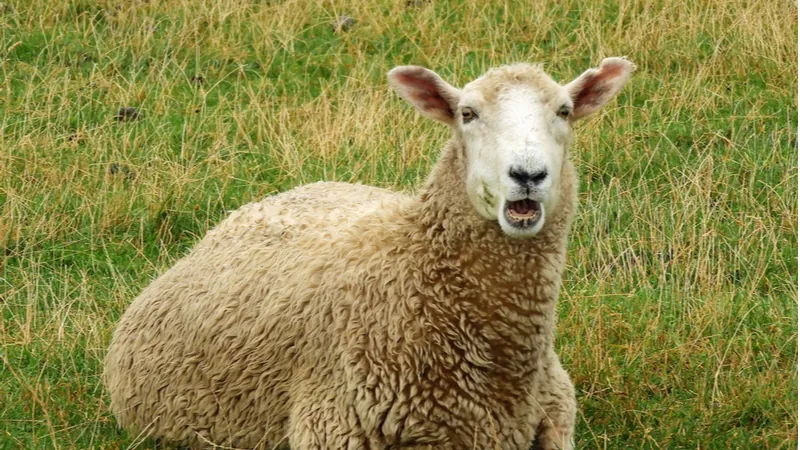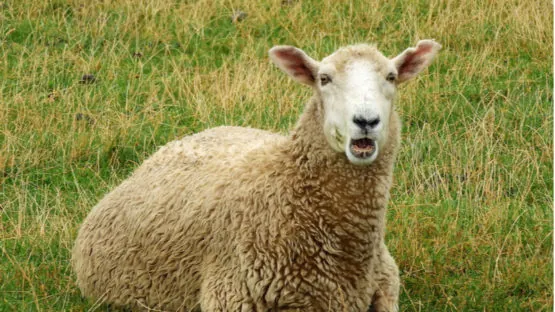Researchers have shown that castration makes male sheep live longer, and they’ve also used genomic data to get a basic understanding of the mechanism behind this longevity [1]. While castration is unlikely to be part of a life extension therapy, unraveling its effect on lifespan will help flesh out the link between sex hormones and lifespan.
A poorly understood relationship
It’s well established that there is a link between sex and lifespan in mammals, with females of many species – including humans – outliving males, but the mechanism behind this difference isn’t yet understood. Scientists expect the link to be mediated by sex hormones, and this notion is supported by various experiments. Castration increases the lifespan of lab rodents and domestic cats, and ovariectomies have been shown to accelerate the epigenetic clock.
Now, an international team of researchers have developed an epigenetic clock for sheep, and in the process of this research, they developed a better understanding of the link between sex and lifespan. Because the populations from which they collected tissue samples included castrated sheep grown for wool production, the researchers were able to compare the readings of their epigenetic clock in castrated males, intact males, and females.
“Both farmers and scientists have known for some time that castrated male sheep live on average much longer than their intact counterparts; however, this is the first time anyone has looked at DNA to see if it also ages slower,” said the first author of the study, University of Otago PhD student Victoria Sugrue in a press release.
Analyzing the epigenetics
There was no difference in epigenetic age between juvenile intact and castrated males, but in sheep older than 18 months, the castrated males had a significantly lower epigenetic age than intact males. According to the epigenetic clock, mature castrated males were an average of roughly 3 months younger than their chronological ages, while there was no difference in the epigenetic and chronological ages of intact males or of females.
The team built on these findings to investigate which factors contribute to the truncated lifespan of intact males. They identified roughly 4700 methylation probes that were expressed differently in castrated and intact males. Many of these become progressively less methylated over the life of intact males but retain methylation in castrates; of the top 50 differentially expressed sites, only two had a gain of methylation in the castrates.
Further examination revealed that more than half of the top 50 sites are bound to by androgen receptor, including the 14 most significantly differing loci. The most prominent differentially methylated sites also had a negative correlation with sheep mass in intact males and a positive correlation in castrates, consistent with the observation that intact males tended to be heavier than castrates. Taken together, these results demonstrate a link between castration, androgens, and DNA methylation patterns that act together to influence the lifespan of male sheep.
“We found that males and females have very different patterns of DNA aging in sheep; and that despite being male, the castrates (wethers) had very feminine characteristics at specific DNA sites. Interestingly, those sites most affected by castration also bind to receptors of male hormones in humans at a much greater rate than we would expect by chance. This provides a clear link between castration, male hormones and sex-specific differences in DNA aging,” said Tim Hore of the University of Otago, the study’s lead author, in a press release.
Abstract
In mammals, females generally live longer than males. Nevertheless, the mechanisms underpinning sex-dependent longevity are currently unclear. Epigenetic clocks are powerful biological biomarkers capable of precisely estimating chronological age and identifying novel factors influencing the aging rate using only DNA methylation data. In this study, we developed the first epigenetic clock for domesticated sheep (Ovis aries), which can predict chronological age with a median absolute error of 5.1 months. We have discovered that castrated male sheep have a decelerated aging rate compared to intact males, mediated at least in part by the removal of androgens. Furthermore, we identified several androgen-sensitive CpG dinucleotides that become progressively hypomethylated with age in intact males, but remain stable in castrated males and females. Comparable sex-specific methylation differences in MKLN1 also exist in bat skin and a range of mouse tissues that have high androgen receptor expression, indicating that it may drive androgen-dependent hypomethylation in divergent mammalian species. In characterizing these sites, we identify biologically plausible mechanisms explaining how androgens drive male-accelerated aging.
Conclusion
The basic research in this paper is the construction of a pair of epigenetic clocks for sheep as well as a dual human-sheep clock. However, by taking advantage of the fact that their sample population included castrated sheep, the researchers were able to probe the link between sex hormones and longevity. Building on this research will help us understand how male sex hormones affect aging, which could lead to less drastic interventions that might yield similar benefits.


